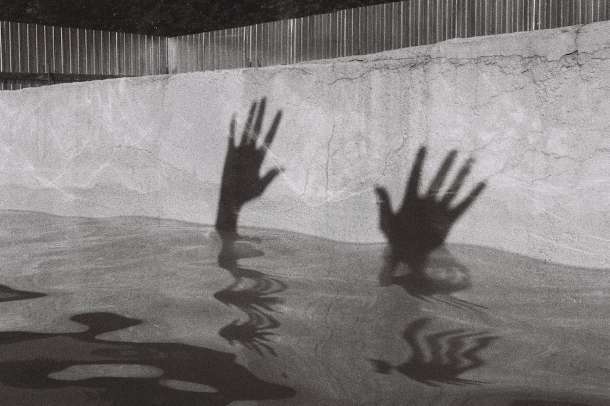Blog Post
Canada’s new euthanasia law threatens your loved ones who suffer from mental illness
By Jonathon Van Maren
Everybody knows somebody who struggles with mental illness. Everybody, whether they are aware of it or not, knows and loves somebody who has experienced suicidal ideation. Thus, the expansion of Canada’s euthanasia regime by the Trudeau Liberals and the Bloc Quebecois on March 11 after they forcibly closed debate and passed Bill C-7 impacts everyone. Included in the bill was the Senate’s insertion of an amendment approving euthanasia for those suffering exclusively from mental illness.
Experts have been predicting a pandemic of mental illness stemming from the COVID-19 pandemic and the government response to it. Six years after legalizing assisted suicide (and well over 19,000 deaths later), the Canadian government has utterly failed to ensure that palliative care is available and that options other than a lethal injection are actually accessible. For many suffering Canadians, Canada is offering them suicide—funded and facilitated by the government—or nothing. Many are choosing death out of despair. That has always been the case—but never before has Canada offered suicide rather than prevention.
Bill C-7 was introduced last February after the Quebec Superior Court’s Truchon decision struck down the 2015 law’s requirement that someone’s death be “reasonably foreseeable” before they became eligible for assisted suicide. Unsurprisingly, the Trudeau Liberals didn’t bother to appeal the decision, and instead passed Bill C-7 in December 2020, after which the Senate amended the legislation to allow those with mental illness—and no other disease or condition—eligibility for assisted suicide. In other words, you can be eligible for assisted suicide if you are suicidal. The tragedies that will be spawned by this awful law will fill an ocean of grief.
Justice Minister David Lametti has stayed euthanasia for mental illness for two years, during which time the government will develop protocols surrounding procedure and implementation. Here’s how Alex Schadenberg of the Euthanasia Prevention Coalition summed up Bill C-7:
- Bill C-7 removed the requirement in the law that a person’s natural death be reasonably foreseeable in order to qualify for assisted death. Therefore, people who are not terminally ill could die by euthanasia. The Truchon decision only required this amendment to the law, but Bill C-7 goes further.
- Bill C-7 permits a doctor or nurse practitioner to lethally inject a person who is incapable of consenting, if that person was previously approved for assisted death. This contravenes the Supreme Court of Canada Carter decision which stated that only competent people could die by euthanasia.
- Bill C-7 waives the ten-day waiting period if a person’s natural death is deemed to be reasonably foreseeable. Thus a person could request death by euthanasia on a “bad day” and die the same day. Studies prove that the “will to live” fluctuates.
- Bill C-7 creates a two-track law. A person whose natural death is deemed to be reasonably foreseeable has no waiting period while a person whose natural death is not deemed to be reasonably foreseeable would have a 90-day waiting period before being killed by lethal injection.
- Bill C-7 (originally) falsely claimed to prevent euthanasia for people with mental illness. The euthanasia law permits MAiD for people who are physically or psychologically suffering that is intolerable to the person and that cannot be relieved in a way that the person considers acceptable. However, mental illness, which is not defined in the law, is considered a form of psychological suffering. Now that parliament amended Bill C-7 to specifically permit euthanasia for mental illness, at least the charade has lifted.
Bill C-7 went much further than the Quebec Superior Court Truchon decision and now that parliament has approved euthanasia for mental illness alone, Bill C-7 is much worse.
Bill C-7 will now go back to the Senate for debate and a vote. The Senate may once again amend the bill, sending it back again to parliament nonetheless, the damage has been done.
Incredible numbers of Canadians woke up to the reality of euthanasia for mental illness alone would mean for Canada. More than 53,000 people signed our petition opposing Bill C-7 and more than 18,000 people signed our petition opposing euthanasia for mental illness. Almost universally, people with disabilities recognized that Bill C-7, directly affects them. Many medical professionals responded to Bill C-7, especially since the law is out-of-control without even providing them with effective conscience protections.
Think, for a moment, of those in your life who struggle with mental illness. Think of those who have faced such black despair that they thought of taking their own life—or at least needed to be persuaded that their life was still worth living. And then, think of that loved one sitting in a doctor’s office—and that doctor now being legally obligated to present either difficult treatment with unsure results, or suicide. To those suffering the agonies of depression and other mental illnesses, the government will be there offering to put them to sleep like a household pet.
I never want to hear anyone who voted for this travesty talk about mental illness ever again.
_______________
If you’re interested in knowing how to discuss this issue with your friends, check out this resource by myself and my colleague Blaise Alleyne.









Disgusted, appalled and saddened by Bill C-7!!
There are so many bills being passed that we aren’t aware of. It is so appalling that Bill C-7 was passed.